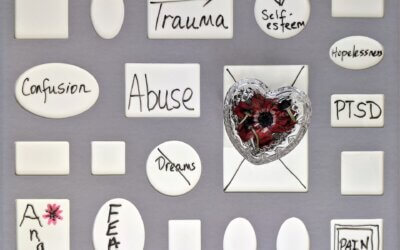Healing with Trauma Therapy
Making Sense of Suffering – Trauma Recovery Is Possible


Trauma is not just an event that took place sometime in the past; it is also the imprint left by that experience on the mind, brain, and body.”

Trauma Recovery and Healing
Common Types of Traumas I Can Help With
- Abuse
- Accidents/Serious Injury
- Birth Trauma
- Childhood Trauma
- Domestic Violence
- Witnessing Trauma
- Medical Trauma
- Natural Disasters
- Loss of a Loved One
- Traumatic Grief
- Reproductive Loss
- … and more
I Work with a Wide Range of Women Experiencing the Impact of Trauma on…
Body Mind Relationships Work Intimacy & Feeling Safe
These are some of the experiences that women that I work with bring in. If any on these sound like you, you may respond well to the trauma therapy treatment approach I offer.
“I don’t know how to move on”
“I lost my ability to truly trust anyone”
“I feel disconnected from my own body, numb”
“I feel like I am always just going through the motions of life”
“I constantly question my worth and blame myself for what happened”
“I am on edge, hyperaware of my surroundings, always anticipating danger”
“The nightmares are relentless, replaying the trauma over and over”
“I struggle with intimacy and forming close relationships”
“The smallest triggers can send me into a panic”
“I feel disconnected from my own body”
“I feel unsafe”

Recovering from Trauma
It’s Possible, Not a Myth
Healing from trauma is a journey that can sometimes feel daunting and insurmountable. However, it is important to recognize that it is possible. With advances in science and research, we now better understand the brain and how it can heal from trauma.
Studies have shown that the brain is capable of neuroplasticity, meaning it can rewire and adapt to new experiences. This means that individuals can work towards healing and recovery with the proper support and tools.
Therapies such as cognitive-behavioral therapy (CBT), Eye Movement Desensitization and Reprocessing (EMDR), and somatic experiencing have all been effective in treating trauma.
Additionally, self-care practices such as exercise, meditation, and mindfulness have been found to reduce symptoms of anxiety and depression.
While healing from trauma is challenging, it is important to remember that it is possible.
Trauma can lead to a transformational experience that allows individuals to develop a deeper appreciation for life and greater empathy and compassion for others. Through healing, trauma survivors can learn to tap into their inner strength and resilience, which can help them navigate future challenges with greater ease.
Additionally, trauma can lead to a greater sense of purpose and meaning in life. Many trauma survivors report feeling called to help others who have experienced similar traumas, and this drive to help others can lead to a sense of fulfillment and purpose that may not have been present before.
You, too, can find a path toward a brighter future with the right resources and support.

Unpacking the Impact of Trauma: How It Can Affect Different Areas of Your Life
Common Symptoms and their Impact
Body
- Insomnia or difficulty sleeping
- Nightmares or reoccurring scary dreams
- Chronic pain or physical discomfort
- Fatigue or exhaustion
- Muscle tension or stiffness
- Changes in appetite or eating habits
- Headaches or migraines
- Rapid heartbeat or palpitations
- Nausea or digestive issues
Mind
- Anxiety or panic attacks
- Depression or feelings of sadness
- Fear or phobias
- Difficulty concentrating or focusing
- Memory loss or forgetfulness
- Feelings of guilt or shame
- Irritability, anger, or mood swings
- Feelings of helplessness or hopelessness
Relationships
- Isolation or withdrawal from others
- Difficulty trusting others
- Fear of intimacy or closeness
- Difficulty communicating or expressing emotions
- Relationship conflicts or breakdowns
- Codependency or unhealthy attachment patterns
Work
- Decreased productivity or motivation
- Difficulty concentrating or focusing
- Absenteeism or tardiness
- Difficulty completing tasks or meeting deadlines
- Fear of failure or making mistakes
- Difficulty working in teams or with others
Intimacy and Safety
- Fear of physical or emotional intimacy
- Difficulty setting boundaries or saying no
- Sexual dysfunction or avoidance
- Difficulty feeling safe or secure
- Hypervigilance or heightened awareness of danger
- Difficulty trusting others or feeling vulnerable
- Fear of being judged or rejected.
These symptoms can be debilitating, overwhelming, and misunderstood.
And they are treatable!

Therapy That Makes A Difference
I know that trauma therapy can be challenging! Feeling vulnerable and thinking about facing what happened again might seem impossible and unmanageable.
Although I haven’t gone through the same hardships and terror you have survived, I will listen compassionately, without judging, and try to understand what happened to you through your eyes.
I use Trauma-Informed Therapy. The type of trauma therapy I use is called EMDR. EMDR is an integrative psychotherapy approach that has been extensively researched and proven effective for treating trauma. EMDR therapy has helped many people of all ages recover from psychological stress. Having used EMDR for hundreds of hours over the years, I trust its process because I have seen it work.
In my training and experience, I’ve walked beside many survivors. I can become a guide to you, teach you new ways of coping, and help you face and heal from your trauma with EDMR trauma-informed therapy.
Time does not automatically heal all wounds. Sometimes it takes a different approach. Trauma-informed therapy has proven to help people recover from trauma – regardless of how long ago it took place.
Through my extensive work in inpatient and intensive outpatient trauma programs and private practice experience, I have gained invaluable experience treating a diverse range of individuals impacted by trauma. My expertise includes working with Vietnam veterans, frontline healthcare workers, car accident survivors, catastrophe survivors, individuals experiencing traumatic grief, those affected by reproductive and birth trauma, and individuals who have suffered childhood abuse and neglect. This breadth of experience has equipped me with a deep understanding of how trauma can affect individuals and has empowered me to tailor my approach to meet the unique needs of each person I work with.

How do you know if you’re ready for therapy?
It’s a rare person who feels ready to talk about their trauma. Traumatic reactions are very much about not feeling prepared and wanting to avoid the pain by avoiding talking or even thinking about what happened. You may be ready even if you never truly feel ready.
Trauma therapy is a challenging and rewarding experience. It can make a markedly positive difference in your life. With treatment, you can move beyond your past traumas to improve your quality of life. Many people find that their symptoms go away or at least decrease significantly. No matter what you’re going through, there is reason to hope.
You can heal from trauma or PTSD. I have been privileged to see it happen many times, no matter if the trauma occurred last month or decades ago. I can show you the research and tell you about the success stories. Even so, you still might not feel hope for personal recovery. Feeling like you can’t or won’t heal or that you’re not ready to talk about it are symptoms of unresolved trauma.
Trauma is common in women. Five out of ten women experience a traumatic event in their lives.
(National Center for PTSD)
Healing Beyond PTSD
Navigating the Many Forms of Trauma

It’s natural for people who have gone through traumatic experiences to doubt the significance of what they have been through, especially if they think it was not “bad enough” to cause trauma.
However, it’s important to remember that trauma is a very personal experience, and everyone’s response to it is unique and valid. If you ever find yourself questioning the intensity of your experience or dismissing it as insignificant, try to focus on acknowledging the pain you feel and the impact, it has had on your life.
Avoid judging yourself or your experience, and know that your pain and feelings are real. Healing from trauma can be challenging, but seeking help and support is vital to the recovery process.
Remember that there is no right or wrong way to experience trauma, and you are not alone in your journey toward healing.

Helping Clients Recover from Trauma is my Specialty and Passion
I am deeply committed to helping individuals recover from trauma and have dedicated a significant amount of time to this work. In 1996, I completed a rigorous Trauma Therapist Certification program at West Virginia University’s Department of Behavioral Medicine and Psychiatry, which lasted six months. I have.
Additionally, I hold certifications in EMDR Levels I and II and have received specialized training in trauma-informed treatments such as Cognitive Processing Therapy and Exposure, Attachment-Based EMDR, EMDR for Birth and Reproductive Trauma, and other training.
I am committed to ongoing education and frequently seek additional training to enhance the quality of care I provide. My approach to therapy incorporates mindfulness, value-based modalities, and compassion-based techniques.
As a seasoned clinician, I have offered psychotrauma consultation, supervision, and training to graduate students and other therapists.

Relevant Articles by Iris Hogan
Eco-Anxiety: What is It and Why Do People Experience It?
Discover what eco-anxiety is, why it occurs, and the signs to look out for. Learn what you can do to cope with it and manage it better.
What Does Undiagnosed PTSD Look Like?
Undiagnosed PTSD can have significant negative impacts on your life. Recognize the symptoms and learn what to do about it.
Overcoming Tokophobia- Fear of Childbirth
Overcome the fear of childbirth with compassion and support. Learn about tokophobia, its causes, and coping strategies, and explore strategies.



